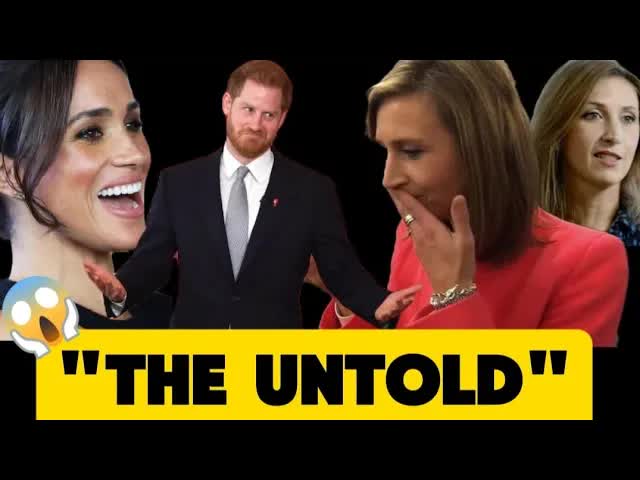In a recent conversation with royal correspondent Rhiannon Mills, the complexities of Prince Harry’s life and his eventual departure from royal duties were brought to light.
Mills reflected on her early interactions with Harry, revealing insights into his mindset during a pivotal trip to New Zealand just a few years ago.
At that time, Harry was grappling with significant changes in his life, including his transition out of the army.
Mills recounted how she managed to secure an interview with Harry during this trip, which was marked by an unusual journey to reach him—a ride with a local rat catcher on a remote island.
This quirky introduction set the stage for a candid discussion about his aspirations and responsibilities.
Harry was open yet cautious, indicating that while he was willing to share, he might not always answer every question.
During their chat, Mills asked Harry about his thoughts on moving away from royal life, to which he expressed a longing for independence but felt tethered by his duty to support Queen Elizabeth II.
This sentiment resonated deeply with Mills, highlighting that Harry’s sense of obligation was intertwined with affection for his grandmother and the monarchy.
The conversation took a more personal turn when Mills inquired about Harry’s desire to become a father.
His response—that he would love to have kids but recognized a necessary process—sparked immediate interest and even concern from his communications team.
It was a moment that underscored Harry’s aspirations while revealing the pressures he faced within the royal framework.
Fast forward to today, and the narrative surrounding Prince Harry often centers around his relationship with Meghan Markle.
However, Mills emphasized that it is crucial to understand that Harry’s desire to leave the royal family had been brewing long before Meghan entered the picture.
The idea that Meghan alone influenced his decision oversimplifies a much deeper story.
Harry has long dealt with the intense scrutiny that comes with being a member of the royal family.
He has spoken candidly about the toll this constant attention took on his mental health.
It’s easy to forget that behind the title of prince lies a man searching for peace and normalcy amidst chaos.
His decision to step back from royal duties was not a rash move; rather, it was a carefully considered choice fueled by years of reflection.
Harry sought a life where he could be true to himself, unencumbered by the expectations that come with royalty.
Mills pointed out that Harry’s journey has always been about finding his voice and living authentically.
Today, as a husband and father, Harry enjoys a newfound freedom.
He no longer feels constrained by royal protocols, allowing him to express himself more openly and engage with the world on his own terms.
This shift marks a significant evolution in his life, one that prioritizes personal happiness and fulfillment over tradition.
While Meghan undoubtedly plays a significant role in Harry’s life, it is essential to recognize that his departure was not solely about her influence.
It was about Harry’s quest for a more meaningful existence, one that aligns with his values and aspirations.
His commitment to his family, particularly his grandmother, remains steadfast.
The narrative that Meghan “took” Harry away from the royal family fails to capture the full picture.
Harry’s journey has been about embracing change and seeking a path that reflects his growth and dedication to those he loves.
His story is one of resilience, courage, and authenticity, demonstrating that the journey to personal freedom often comes with its own set of challenges.
As we reflect on Prince Harry’s life, it’s clear that his decision to step back from royal duties was not a rejection of his family but rather an affirmation of his individuality.
Today, he continues to navigate his new role with grace, advocating for causes close to his heart and embodying the values he holds dear.
